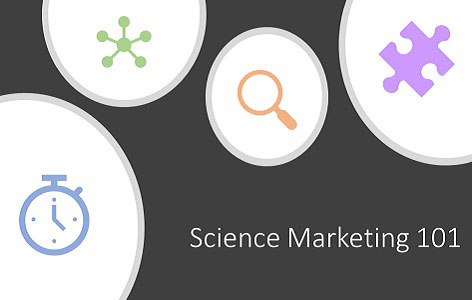
By: Tyler Saumur, UHN Trainee and ORT Times Writer
As trainees and scientists, the impact that marketing can have on our careers may not be abundantly clear. A recent column piece published in Nature explores how to boost your market value as a scientist. According to Pete Fiske, the author of the column, “Marketing…is a two-part process: figuring out what that product or service needs to be…and then working out how best to promote and present it.” The article specifically focuses on ways to market yourself as a desirable and employable job candidate and how to tailor your research to the strategic plans of granting agencies.
It can be disheartening, as a trainee, to apply for jobs for which you feel that you may not be the perfect fit—a reality that is all too common given the highly specialized nature of research. However, approaching a job search by waiting for the perfect job posting to appear is not the best approach. Instead, conduct a market analysis and strategy before applying to specific jobs. According to Fiske, this involves playing to your strengths in four different ways. First, it is important to know yourself and what you want from a job; this involves knowing what environments you thrive in and enjoy. Second, conduct a market analysis by seeking out individuals with similar backgrounds to yourself and determining which industries are best suited to your skill set. Third, be sure to use your professional networks; this may involve actively expanding your network and reaching out to various people who are in positions of interest to learn about the paths that they took. Fourth, and lastly, focus on the opportunities by feeling out the work environment of various organizations of interest. While these approaches can seem awkward because they may involve reaching outside of your comfort zone, they represent potent ways to improve your employability. Always think to yourself, “what is the worst-case scenario?” If it isn’t much more than someone not responding to an email, where’s the harm? These approaches will greatly contribute to your understanding of where you want to go in the future and where you will thrive.
With respect to grant writing, this may also involve more than just reading a request for grant proposal (RFP) and writing your grant application to fit those needs. Funders often know well in advance of RFP release what their 5-year plans and key areas of research are. Contacting funders is fundamental to gaining additional information that may not be offered publicly. Being a research assistant, I was amazed to find out that scientists will often reach out to program managers to find out what strategic direction the organization is taking for a specific RFP. Organizations are often more than happy to share this information with you and it can greatly improve competitiveness of applications. Overall, marketing is a skill which may seem a little divergent from typical scientific thinking, but it can greatly improve the marketability of not only your research, but yourself.
Reference:
1. Fiske, P. (2018). Why scientists need to market themselves. Nature, 555(7695), 275-276. doi: 10.1038/d41586-018-02747-y




